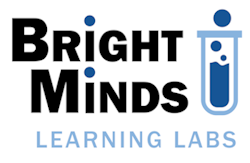Laboratory experiences are an integral part of science education, providing students with valuable skills and a deeper understanding of scientific concepts.
Enhancing Mastery of Subject Matter: Laboratory experiences can help students understand and apply the theoretical concepts taught in class.
Developing Scientific Reasoning: These experiences can foster scientific reasoning abilities, allowing students to apply logic and critical thinking to solve problems.
Understanding the Complexity and Ambiguity of Empirical Work: Laboratories provide a hands-on environment where students can directly observe and manipulate the material world, understand measurement error, and interpret and aggregate the resulting data.
Developing Practical Skills: Laboratory work can help students develop practical skills that are often within their area of specialization.
Understanding the Nature of Science: It provides a firsthand experience of how science works, including the process of investigation and inquiry.
Cultivating Interest in Science and Science Learning: Engaging in laboratory work can increase students’ interest in science and motivate them to learn more.
Improving Teamwork Abilities: Many laboratory activities require teamwork, which can help students develop collaboration and communication skills.
Experiential Learning: Laboratory learning allows students to learn by doing, drawing meaning and understanding from these experiences.
“3 Laboratory Experiences and Student Learning.” National Research Council. 2006. America’s Lab Report: Investigations in High School Science. Washington, DC: The National Academies Press. doi: 10.172126/11311.
Ka Yuk Chan, C. (2012). Laboratory Learning. In: Seel, N.M. (eds) Encyclopedia of the Sciences of Learning. Springer, Boston, MA. https://doi.org/10.1007/978-1-4419-1428-6_966
“7 Laboratory Experiences for the 21st Century.” National Research Council. 2006. America’s Lab Report: Investigations in High School Science. Washington, DC: The National Academies Press. doi: 10.17226/11311.
